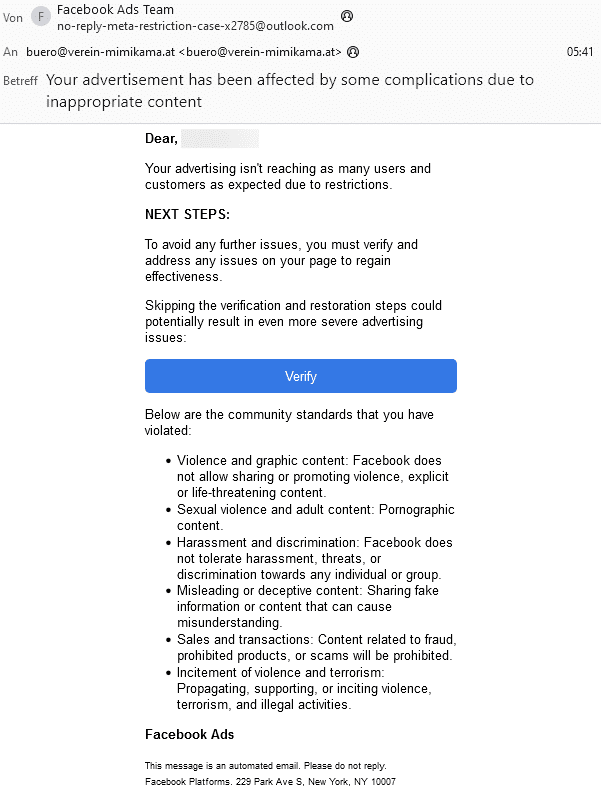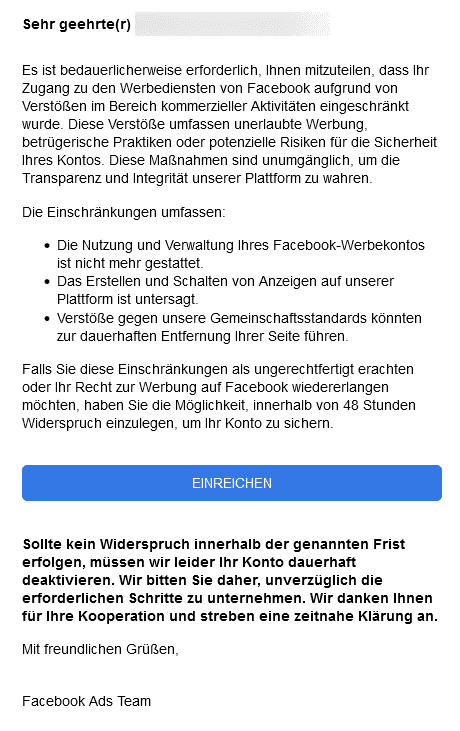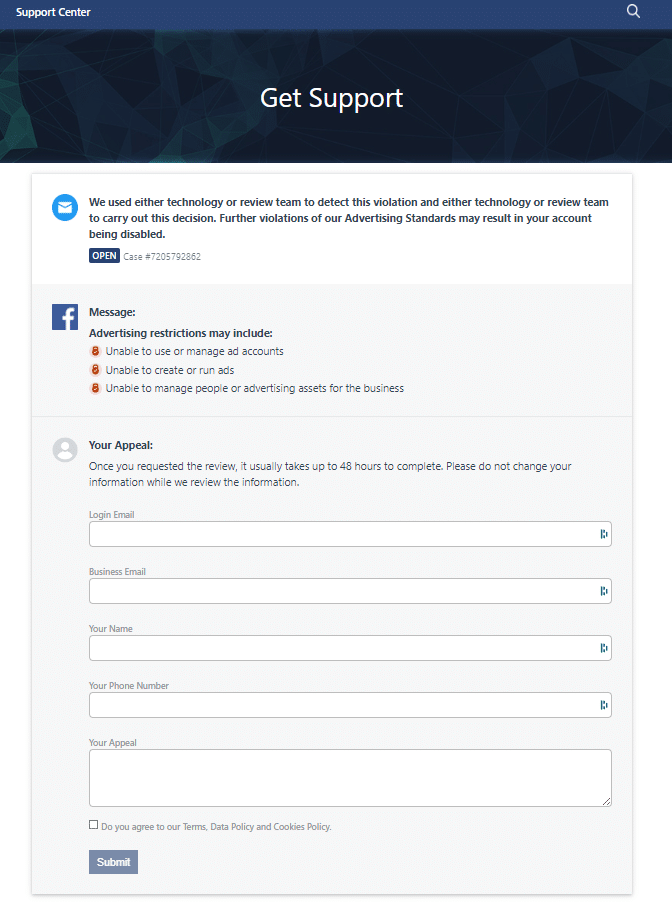Nowadays we are constantly exposed to threats such as phishing emails. A particularly sneaky scam that is currently causing a stir is sending fake emails in the name of Meta. The scammers' goal is to trick unsuspecting users into entering their login details on a fake meta or Facebook page. This gives criminals control over users’ profiles and pages.
The scammers' tactics
These emails are often cleverly designed to appear credible. Typically, they warn about alleged temporary deactivation of your account due to advertising policy violations. They apply pressure by setting a short deadline for you to respond in order to “verify” your account and start a supposed appeal process.
These and similar emails are:



Correct handling of suspicious emails
If you receive such an email, do not click on any links contained therein. Instead, check your account status directly on the official Meta or Facebook website. Report the email as a phishing attempt and inform the relevant authorities.
Preventive action
To protect yourself from such attacks, you should regularly review your security settings and use strong, unique passwords. It is also advisable to enable two-factor authentication to further secure your account.
frequently asked Questions
- What to do if you receive a suspicious meta email? Do not click on links, report email as phishing, check account status on official website.
- How do I identify a fake meta email? Watch out for threats to deactivate your account, short response times, and requests for your information.
- What are the dangers of clicking on links in such emails? Your login details could fall into the hands of fraudsters who can then take over your profile and pages.
- How can I secure my account? Use strong passwords and enable two-factor authentication.
- Who do I contact if I have been scammed? Contact Meta/Facebook and local authorities.
Further information and measures
Stay vigilant and continually learn about new fraud methods. Subscribe to the Mimikama newsletter at Mimikama Newsletter and take part in our online lectures and workshops: Mimikama Online Lectures .
Also read:
Notes:
1) This content reflects the current state of affairs at the time of publication. The reproduction of individual images, screenshots, embeds or video sequences serves to discuss the topic. 2) Individual contributions were created through the use of machine assistance and were carefully checked by the Mimikama editorial team before publication. ( Reason )

